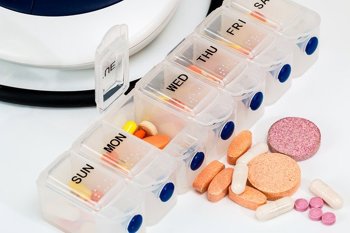Improving the repeat ordering process to reduce medicines waste in Warrington
Wednesday, 24 November 2021

Background
The increasing cost of drugs and amount of medicines waste within the NHS due to over-ordering of medicines, stockpiling and unused medicines was raised by our CCG clients. Warrington Clinical Commissioning Group (CCG) asked our Medicines Management and Optimisation (MMO) team were asked to support reductions in medicines waste. We decided to test whether patients ordering their own repeat prescription directly from the GP practice rather than a third party ordering on their behalf would improve safety and reduce medicines waste.
Action
The MMO team led and implemented a phased pilot project initially with seven GP practices, increasing to 12 after six months. Patients were empowered to order only items that were needed on their repeat prescription directly from the GP practice. This removed the third party ordering via pharmacies for the majority of patients.
Individual arrangements were agreed for a few patients at each practice who were identified as needing help with ordering their medication. We supported each practice and provided training for all staff, developing and sharing an information pack to support processes to be completed before the ‘go live’ date. We worked with the CCG’s communications team, Local Pharmaceutical Committee leads and community pharmacies to inform the public about changes required to implement the new system.
Each practice went live on a different date, enabling the MMO team to be on hand to support staff and patients with queries.
Impact
The repeat ordering project improved patient safety, reduced medicines waste and saved money. Most recent data available shows lower spend on medicines resulting from a significant reduction in the number of items issued, which correlates with associated improvements in patient safety and quality.
The average number of items prescribed monthly in each practice after implementation of the pilot was significantly reduced compared to the period prior to implementation. In total 18,028 fewer scripts were issued each month across the pilot practices whilst non-pilot practices issued 5,112 fewer scripts.
Item growth within pilot practices was reduced, with an average for the participating practices of -2.7% April to August 2017 (when compared to April to August 2016) against the items growth at non-pilot practices of -0.6%.
This represents an estimated cost saving of £108,365 based on Warrington CCG average actual cost per item (April 2016 - March 2017) of £8.39 multiplied by difference in item variance between pilot and non-pilot practices.
The project team were very supportive to the practice in preparing for and following the ‘go live’ date. We did meet some initial resistance from our patients because they felt we were inconveniencing them by asking them to order directly via the practice but by taking the time to explain the long-term benefits for everyone, their initial concerns were overcome. The other added benefit is the increased usage of our online services not only for ordering repeat medication but booking appointments, accessing test results, updating personal information etc.”
Andrea Catterall
Practice Manager
Padgate Medical Centre
